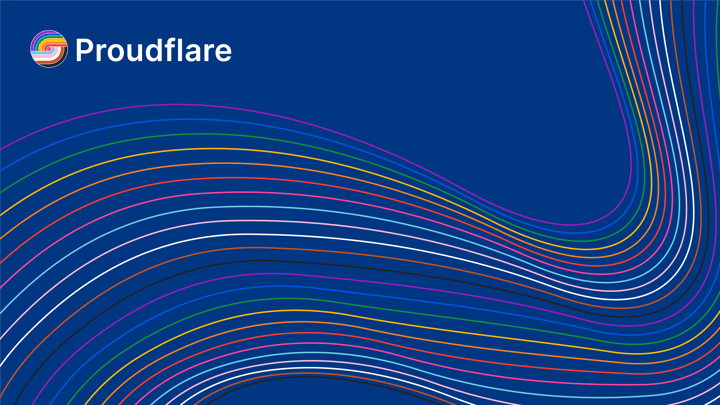🏳️🌈 Pride Month
Celebrate Pride Month with these Cloudflare TV segments!

Celebrate Pride Month with these Cloudflare TV segments!
All episodes

In honor of Pride Month, Proudflare is featuring a special Fireside Chat that highlights several Queer community members and their stories. Join host Otto Imken and guests Eric Allen from Cloudflare and J-Wo from AIDS LifeCycle as they talk about what...
Join Jacob Zollinger and Eric Allen on CFTV talking about all things Pride 2021! They will be joined by special guest Jen Taylor to talk about what it is like being Proudflare's Executive Sponsor.
A send up of Hollywood Squares where Cloudflare experts fill the celebrity squares and answer high and low-level Cloudflare questions to help two guest stars (customers, AEs or new hires) get a a tic-tac-toe, or possibly the Silicon Valley equivalent...
Breaking Barriers & Binaries: Queer Folks Empowering Community: Join us on Cloudflare TV for a heartfelt, down-to-Earth discussion as we hear from queer folks who have made waves in their respective communities, so we can inspire queer folks everywhere.
Join Jacob Zollinger and Eric Allen on CFTV talking about all things Pride 2021! They will be joined by special guest Nitin Rao, SVP, Global Infrastructure at Cloudflare.
Join Eric Pierre Allen, Accountant at Cloudflare, as he learns how to design Pride Month sneakers from Kari Linder our Senior Visual Designer!
Join Jacob Zollinger and Eric Allen on CFTV talking about all things Pride 2021! They will be joined by special guest Elisa Durrette, Head of Legal, Commercial Transactions, and member of Proudflare.
Join Cloudflare’s Amada Echeverria in conversation with Drag Queen Story Hour as they discuss how Drag Queen Story Hour celebrates reading through the glamorous art of drag, and the ways in which the Project Galileo Program has helped safeguard their...
